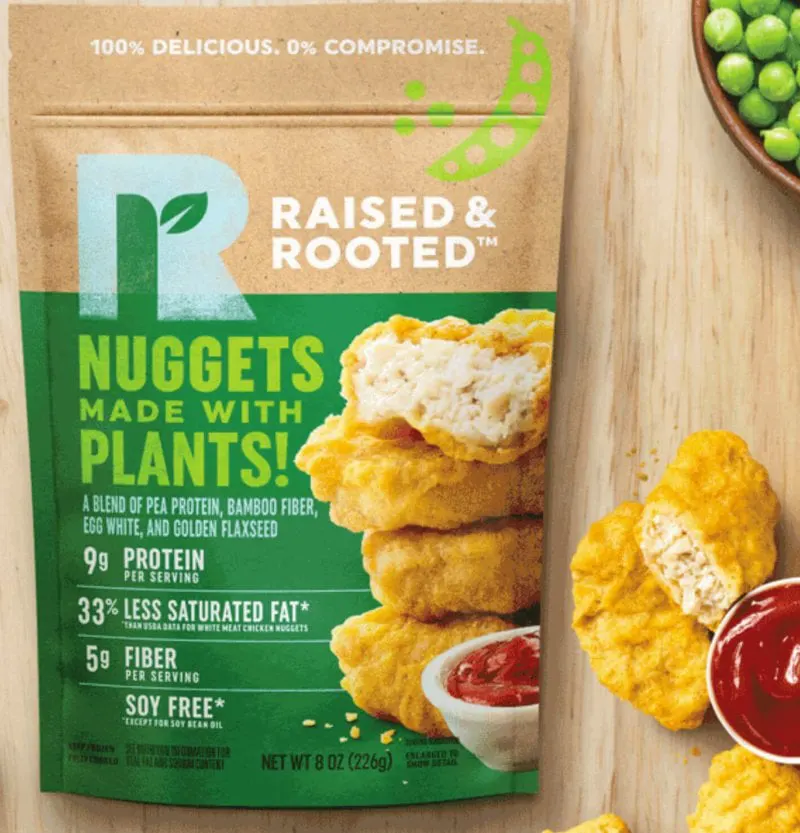Food of the future: Will plant-based and lab-grown proteins become household staples?
Food of the future: Will plant-based and lab-grown proteins become household staples?


Plant-based meats are now a fixture at fast-food restaurants around the world, and plant-based milk is a household staple. Alternatives based on microorganisms have been available for decades, and you can taste meat grown from animal cells in restaurants in Singapore and Israel. Indeed, consumers will soon be able to make nine out of ten of the world’s most popular dishes—especially those using less-structured meat, such as ground beef—with reasonably priced alternative proteins.
What we see today is only the beginning of the protein transformation, however. By 2035, after alternative proteins reach full parity in taste, texture, and price with conventional animal proteins, 11% of all the meat, seafood, eggs, and dairy eaten around the globe is very likely to be alternative. With a push from regulators and step changes in technology, that number could reach 22% in 2035.
In addition to its beneficial impact on human health, the shift to alternatives can make a real contribution to the efforts to combat climate change. By 2035, the shift to alternatives will save as much carbon dioxide equivalent (CO2-e) as Japan emits in a year, conserve enough water to supply the city of London for 40 years, and promote biodiversity and food security. Consumers can eat tasty food while helping protect the planet.
Read the original post

 | Videos | More... |

Video: Nuclear energy will destroy us? Global warming is an existential threat? Chemicals are massacring bees? Donate to the Green Industrial Complex!
 | Bees & Pollinators | More... |

GLP podcast: Science journalism is a mess. Here’s how to fix it

Mosquito massacre: Can we safely tackle malaria with a CRISPR gene drive?

Are we facing an ‘Insect Apocalypse’ caused by ‘intensive, industrial’ farming and agricultural chemicals? The media say yes; Science says ‘no’
 | Infographics | More... |

Infographic: Global regulatory and health research agencies on whether glyphosate causes cancer
 | GMO FAQs | More... |

Why is there controversy over GMO foods but not GMO drugs?

How are GMOs labeled around the world?

How does genetic engineering differ from conventional breeding?
 | GLP Profiles | More... |

Alex Jones: Right-wing conspiracy theorist stokes fear of GMOs, pesticides to sell ‘health supplements’




 Trust issues: What happens when therapists use ChatGPT?
Trust issues: What happens when therapists use ChatGPT? Fighting deforestation with CO2: Biotechnology breakthrough creates sustainable palm oil alternative for cosmetics
Fighting deforestation with CO2: Biotechnology breakthrough creates sustainable palm oil alternative for cosmetics California, Washington, Oregon forge immunization alliance to safeguard vaccine access against federal undermining
California, Washington, Oregon forge immunization alliance to safeguard vaccine access against federal undermining Viewpoint — Fact checking MAHA mythmakers: How wellness influencers and RFK, Jr. undermine American science and health
Viewpoint — Fact checking MAHA mythmakers: How wellness influencers and RFK, Jr. undermine American science and health 30-year-old tomato line shows genetic resistance to devastating virus
30-year-old tomato line shows genetic resistance to devastating virus Viewpoint: Video — Big Solar is gobbling up productive agricultural land and hurting farmers yet providing little energy or sustainabilty gains
Viewpoint: Video — Big Solar is gobbling up productive agricultural land and hurting farmers yet providing little energy or sustainabilty gains The free-range chicken dilemma: Better for birds, but with substantial costs
The free-range chicken dilemma: Better for birds, but with substantial costs ‘You have to treat the brain first’: Rethinking chronic pain with Sanjay Gupta
‘You have to treat the brain first’: Rethinking chronic pain with Sanjay Gupta
